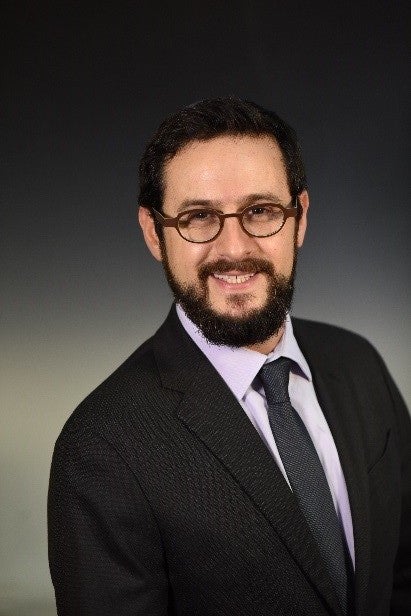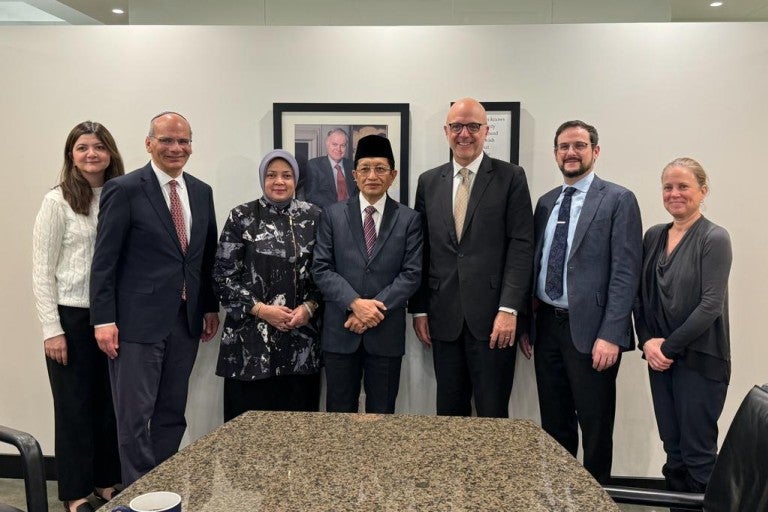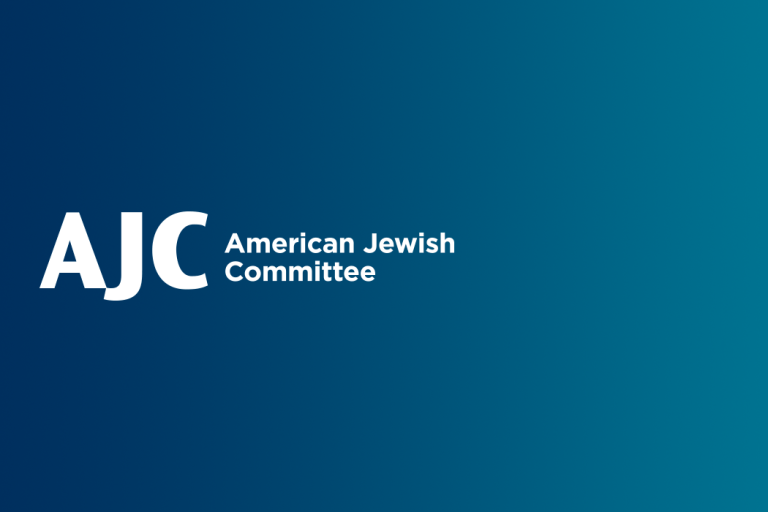June 18, 2019 — New York
This piece originally appeared in JNS.
In times of political factionalism and social discord, minorities often feel more vulnerable. For American Jews, polarizing rhetoric that has accompanied rising antisemitism and violence against Jewish communities accentuates that at-risk sensation. To respond, American Jews must continue to call out antisemitism from all sources and improve security in our institutions. Perhaps of equal importance, however, is the need to call for unity amid division, forge coalitions across differences and exhibit respectful engagement with opposing viewpoints.
Honest engagement with one of the more polarizing areas of Jewish public affairs—Muslim-Jewish relations—has been a highlight of the American Jewish Committee (AJC) Global Forum, the signature annual conference of the leading global Jewish advocacy organization that convened earlier this month in Washington, D.C.
Contrary to what a few strident voices would have us believe, Muslim-Jewish relations in the United States are flourishing. A recent study showed that Jews and Muslims hold one another in high mutual regard, with only about 10 percent of each community harboring negative attitudes towards the other. Likewise, three in four Jews know a Muslim personally—more than any other non-Muslim religious group in the country. Muslims and Jews share many values, including education, philanthropic giving and the desire to promote an American religious identity.
Unfortunately, we also share the experience of being victims of discrimination and targeted attacks. For three consecutive years, the FBI has reported a rise in hate crimes across the country. While Jews top the FBI charts as the lead faith community subject to attacks (58 percent in 2017), American Muslims have seen the greatest growth as a target of bias-motivated violence in two of the past three years (a 67 percent rise in 2015 and 20 percent in 2016).
While anti-Jewish and anti-Muslim bigotry have distinct expressions, the two hatreds also appear to be linked in the hearts of the haters. A 2010 Gallup poll found that people who report feeling a “great deal of prejudice” towards Jews are 32 times as likely to exhibit “a great deal of prejudice” against Muslims. The man who murdered 11 Jews inside the Tree of Life building in Pittsburgh also disseminated anti-Muslim bigotry online. The shooter at Chabad of Poway, Calif., claimed responsibility for setting fire to a mosque in nearby Escondido.
How our communities counter hate can be linked, too. After the Pittsburgh synagogue shooting, American Muslims generously supported the synagogue community and stood in solidarity with Jews across the country by participating in AJC’s #ShowUpforShabbat campaign. Likewise, after the massacre at two New Zealand mosques, Jews contributed funds to the grieving Muslim community and stood with American Muslims across the country at Jummah (weekly Friday) services and interfaith vigils.
Furthermore, both communities benefit when we advocate together. For example, the Muslim-Jewish Advisory Council (MJAC)—established by AJC and the Islamic Society of North America (ISNA)—was instrumental in the passage of the Protecting Religiously Affiliated institutions Act, expanding the scope of coverage and penalties in existing hate crimes legislation. Likewise, MJAC’s national body and eight regional affiliates have called on Congress to assess the threat of violence inspired by white-supremacist ideologies. Four congressional hearings have taken place to date in 2019.
MJAC is a civil society, bipartisan coalition working on domestic issues of common concern. When we demonstrate the advantages of intergroup relationships, we tell the American Muslim-Jewish story that we wish our children and grandchildren to live.
Yet certain issues obstruct the establishment of solidarity between our communities. For example, the Israeli-Palestinian conflict is often the “the elephant in the room” in most Muslim-Jewish dialogues in the United States. Many Muslims perceive a Jewish community that labels any criticism of Israel as antisemitic, and many Jews see a Muslim community for which Israel can do no right.
In truth, those involved in Muslim-Jewish relations know that most affirm the right of all peoples to self-determination. The vast majority wishes to see a negotiated two-state agreement where a Palestinian state exists securely and peacefully side by side with the State of Israel, each preserving the democratic rights of minorities.
But extreme voices in each of our communities seek divisiveness. They want to pull us away from this mutual affirmation. American Jews must confront those who deny Palestinian national aspirations and those who would paint all Muslims as terrorists. Likewise, we should expect our Muslim interfaith partners to call out those who misuse criticism of Israel as thin cover for anti-Jewish sentiment, as well as condemn those who celebrate violence against civilians.
These conversations are not easy, and social media—more often an echo-chamber than a forum for reasoned debate—rarely advances the discussion. Rather, we must develop the trust that will allow us to say things that are difficult to hear and the understanding to say them in a way that they can be heard.
During AJC’s Global Forum, Imam Mohamed Magid addressed a group of several dozen rabbis spanning the denominational spectrum on the challenges and opportunities of Muslim-Jewish engagement. Imam Magid, a founding member of MJAC, is the executive Imam of ADAMS Center in Washington, D.C./Northern Virginia, home to one of the largest Muslim communities in the United States. He has led delegations of Muslim leaders to visit Auschwitz, and he is a staunch critic of antisemitism in all of its forms.
Magid’s presentation modeled effective Muslim-Jewish engagement. He demonstrates keen awareness of our Jewish self-understanding and sensitivities, while his rootedness in Islamic tradition and Muslim communities makes him an effective advocate. He discussed the importance of making ourselves vulnerable enough to appreciate the challenges of the other and strong enough to take on the extremists in our own communities. Magid himself, as well as other MJAC members, have confronted endemic hatred of the other promoted by extremists in both Jewish and Muslim communities.
As the 2020 election cycle gets underway, we cannot allow Muslim-Jewish relations and the Israeli-Palestinian conflict to become political footballs. When one side of the political aisle claims the mantle of sole defender of Muslim or Jewish interests, we all lose. In the best tradition of this country, we must build coalitions on issues of common concern, and when we disagree, advocate for the merits of our positions.
In all intergroup relations, there are times when we can stand shoulder to shoulder. And when we cannot, we have the responsibility to talk about it, face to face.
Dr. Ari Gordon is the American Jewish Committee (AJC) Director of U.S. Muslim-Jewish Relations.
https://www.jns.org/opinion/to-defend-jewish-interests-engage-across-differences/
.



